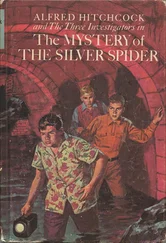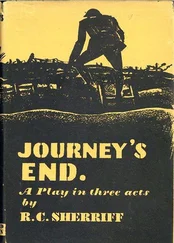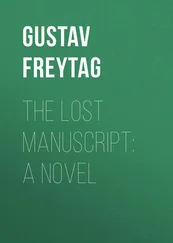Роберт Шеррифф - The Hopkins Manuscript
Здесь есть возможность читать онлайн «Роберт Шеррифф - The Hopkins Manuscript» весь текст электронной книги совершенно бесплатно (целиком полную версию без сокращений). В некоторых случаях можно слушать аудио, скачать через торрент в формате fb2 и присутствует краткое содержание. Год выпуска: 2018, ISBN: 2018, Издательство: Penguin Books, Жанр: sf_postapocalyptic, humor_satire, на английском языке. Описание произведения, (предисловие) а так же отзывы посетителей доступны на портале библиотеки ЛибКат.
- Название:The Hopkins Manuscript
- Автор:
- Издательство:Penguin Books
- Жанр:
- Год:2018
- ISBN:978-0-241-34908-3
- Рейтинг книги:4 / 5. Голосов: 1
-
Избранное:Добавить в избранное
- Отзывы:
-
Ваша оценка:
- 80
- 1
- 2
- 3
- 4
- 5
The Hopkins Manuscript: краткое содержание, описание и аннотация
Предлагаем к чтению аннотацию, описание, краткое содержание или предисловие (зависит от того, что написал сам автор книги «The Hopkins Manuscript»). Если вы не нашли необходимую информацию о книге — напишите в комментариях, мы постараемся отыскать её.
The Hopkins Manuscript — читать онлайн бесплатно полную книгу (весь текст) целиком
Ниже представлен текст книги, разбитый по страницам. Система сохранения места последней прочитанной страницы, позволяет с удобством читать онлайн бесплатно книгу «The Hopkins Manuscript», без необходимости каждый раз заново искать на чём Вы остановились. Поставьте закладку, и сможете в любой момент перейти на страницу, на которой закончили чтение.
Интервал:
Закладка:
R. C. Sherriff
THE HOPKINS MANUSCRIPT
Note
Every character in this book is entirely fictitious and no reference whatever is intended to any living person.
Foreword
(From The Imperial Research Press, Addis Ababa)
When the Royal Society of Abyssinia discovered ‘The Hopkins Manuscript’ two years ago in the ruins of Notting Hill it was hoped that some valuable light would at last be thrown upon the final, tragic days of London.
But a careful study of the manuscript has proved these hopes to have been raised in vain. Edgar Hopkins, its author, was a man of such unquenchable self-esteem and limited vision that his narrative becomes almost valueless to the scientist and historian, and is scarcely mentioned in the Royal Society’s massive and masterly ‘Investigations into the Dead Civilisations of Western Europe’.
But despite all its shortcomings, ‘The Hopkins Manuscript’ possesses one unique feature. It is the only personal day-by-day record yet discovered that gives us the intimate feelings of an Englishman during the days of the Cataclysm. Our ignorance concerning the History of England has caused much comment in recent scientific debates, but it should be remembered that for a hundred years after the collapse of the ‘Western Civilisation’ the peoples of the reborn nations of the East indulged in an orgy of senseless destruction of everything that existed in their own countries to remind them of the days when they lived in servitude to the ‘white man’. Every printed book, every vestige of art surviving from Western Europe, was systematically hunted out and destroyed. The damp climate of England completed this work of destruction in the seven hundred years that followed, and the tragedy of our revival of interest in the long past nations of Europe is that it has come too late. Our knowledge of England may rest for ever upon such inadequate fragments as ‘The Hopkins Manuscript’ that have survived by a miracle of chance.
A word may be said here concerning the romance of its discovery.
The mainland of Western Europe, once inhabited by the French, Germans, Italians and Spanish, has long since been colonised, and every vestige of its past civilisation swept away. In the Island of Great Britain alone there remained some hope of recovering evidence to reconstruct the lost glory of the ‘white man’.
The damp British climate has not attracted the peoples of the East, and for nearly a thousand years, since its last wretched inhabitants starved to death amidst the ruins of their once noble cities, the Island has remained a deserted, ghost-haunted waste – its towns and villages buried ever deeper beneath encroaching forest and swamp.
The difficulties facing the pioneer expedition of the Royal Society of Abyssinia were sufficient to discourage the most ardent explorer and it is not surprising that it returned almost empty-handed.
The English recorded their lives and achievements upon paper so flimsy that every vestige has perished in the perpetual dampness of the Island, and their inscriptions upon metal and stone are of the poorest quality.
An extremely rusted iron tablet was found twelve miles south-west of London. Its inscription has been deciphered by Dr Shangul of Aduwa University as ‘KEEP OFF THE GRASS’ and it is now lodged in the Royal Collection at Addis Ababa.
The rectangular column of stone inscribed ‘PECKHAM 3 MILES’ can be seen in the Imperial Museum of Afghanistan.
The only other inscription found in England raised great hopes when first discovered. It had many names engraved upon it, but it proved to be the greatest disappointment of all. The tablet, which commemorates the opening of a swimming bath in North London, records in detail the names of the Borough Council, the architect and the sanitary engineer and omits the name of the ruling monarch and Prime Minister – an example of urban vain-glory that appals the modern mind.
‘The Hopkins Manuscript’ was discovered by a pure stroke of chance. While cutting brushwood for the fires lit by the expedition every night to protect themselves against the packs of wild dogs that roam the Island, a young scientist discovered a much-decayed wall of red brick that collapsed under pressure, revealing in a recess a small vacuum flask. The manuscript within it had survived where millions of books, exposed to the climate, had perished.
And so ‘The Hopkins Manuscript’ comes to us – a thin, lonely cry of anguish from the gathering darkness of dying England – infinitely pathetic in the pitiful little conceits and self-esteem of its author. It raises the shadows from the dead limbs of a once powerful nation as the glow of a match might dispel the darkness from the desert of Sahara, and yet it is all that we have – all that we may ever have to remind us of a people that once lived in glory.
We know that Julius Caesar invaded Britain, for this is recorded upon imperishable stone in Italy, but what happened after the invasion of Julius Caesar remains a mystery that our men of science are never likely to solve.
This popular edition of ‘The Hopkins Manuscript’ is published exactly as it was written, but a fully annotated edition by that brilliant scholar of English, Dr Shangul of Aduwa University, who has corrected all the author’s grammatical mistakes, has been published by the Royal Society of Abyssinia.
CHAPTER ONE
I am writing by the light of a piece of string which I have pushed through a fragment of bacon fat and arranged in an egg-cup. I shall write by night, partly because I can no longer sleep through these ghastly, moonless chasms, and partly because by day I must search for food, and the days are short.
It is hard to believe that this is Notting Hill, and the inky, silent void beneath me is London. There was a time when I could see a million lights from this window, with the Bayswater Road and Oxford Street piercing the heart of London like a blazing, jewelled sword. There was a time when the roar of the traffic would come up to this window like a lulling sea beneath a dying storm, but now I seem to be suspended in this broken wooden chair between unheavenly darkness and unearthly silence.
An owl was hooting just now in Ladbroke Square, but it stopped abruptly as if suddenly ashamed, like a man who has laughed in a cathedral.
Earlier this evening I saw a few fitful little yellow lights beneath me – flickering and disappearing as people in their ruined houses tinkered with their gimcrack home-made lamps and gave them up in despair. Only a few still try to fight these horrible black nights with their feeble home-made lanterns. The majority have turned into savages and crawl into their sleeping-holes at sunset, and lie there in a kind of stupor until dawn.
I wonder what they think about as they lie there – for most of them are quite alone and none of us has any hope. We are all just waiting for the end.
A man I met yesterday in Kensington Gardens as I was drawing my bucket of water told me that there were only seven hundred people alive in London now, and every one of us can own a streetful of houses if we want them.
An old lady who used to live opposite me at No. 10 Notting Hill Crescent has gone to live in the National Gallery. She heard that it was empty, and wanted to gratify her love of art and lust for possession during the last days that remain to her.
I went to tea with her today. She lives upon the pigeons that fall dead from the Nelson Column in Trafalgar Square. She cooks them over a fire which she keeps blazing with Dutch masterpieces upon the stone floor of the entrance hall. She dislikes Dutch masterpieces and enjoys the fire as much as the pigeons.
After tea she took me around the galleries to show me her collection of Turners, Constables and Gainsboroughs. She had grown tired of one or two and tore them down for her fire that evening. She gave me a little medieval panel worth £5,000. I accepted it as politeness suggested, but threw it away upon my walk home. Nobody disputes her possession and I am glad there is one happy soul in this dying city.
Читать дальшеИнтервал:
Закладка:
Похожие книги на «The Hopkins Manuscript»
Представляем Вашему вниманию похожие книги на «The Hopkins Manuscript» списком для выбора. Мы отобрали схожую по названию и смыслу литературу в надежде предоставить читателям больше вариантов отыскать новые, интересные, ещё непрочитанные произведения.
Обсуждение, отзывы о книге «The Hopkins Manuscript» и просто собственные мнения читателей. Оставьте ваши комментарии, напишите, что Вы думаете о произведении, его смысле или главных героях. Укажите что конкретно понравилось, а что нет, и почему Вы так считаете.












